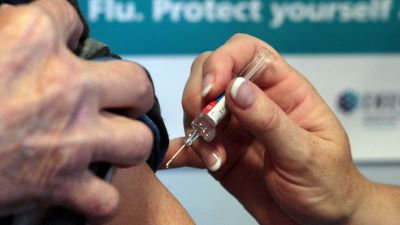Everything you need to know about the flu as Boots prepares for 'busiest year yet' for jabs

Boots is preparing for what it believes could be the busiest year yet for flu jabs.
The Nottingham-based chemist made the claim as it’s believed this year's uptake of the flu vaccine could be crucial in helping to prevent the NHS from being overwhelmed, particularly if there is a resurgence of coronavirus.
The vaccination is available every year on the NHS to help protect people aged 65 and over, those with certain medical conditions, pregnant women and children at risk from flu and its complications.
Later this year, the vaccine may also be offered to everyone aged over 50.
What is flu?
Flu (influenza) is a common viral illness spread by coughs and sneezes.
Flu can be caught all year round, but it's especially common in winter.
Flu isn't the same as the common cold. It is caused by a different group of viruses and the symptoms tend to start more suddenly, be more severe and last longer.
What are the symptoms?
Some of the main symptoms of flu include:
a high temperature (fever) of 38C (100.4F) or above
tiredness and weakness
a headache
general aches and pains
a dry, chesty cough
Cold-like symptoms, such as a blocked or runny nose, sneezing, and a sore throat, can also be caused by flu, but they tend to be less severe than the other symptoms.
Flu can make you feel so exhausted and unwell that you have to stay in bed and rest until you feel better.
What do I do if I have flu symptoms?
If you're otherwise fit and healthy, there's usually no need to see your GP if you have flu-like symptoms.
The best remedy is to rest at home, keep warm and drink plenty of water to avoid dehydration. You can take paracetamol or ibuprofen to lower a high temperature and relieve aches if necessary.
Stay off work or school until you're feeling better. For most people, this will take about a week.
When should I see my GP?
Consider visiting your GP if:
you're 65 years of age or over
you're pregnant
you have a long-term medical condition – such as diabetes, heart disease, lung disease, kidney disease or a neurological disease
you have a weakened immune system – for example because you're having chemotherapy or have HIV
you develop chest pain, shortness of breath, difficulty breathing or start coughing up blood
your symptoms are getting worse over time or haven't improved after a week
More information on flu and the vaccine: